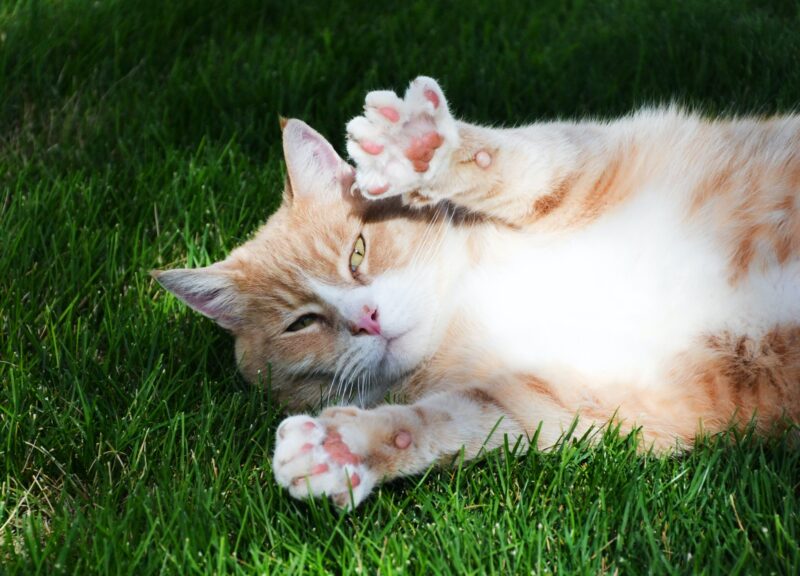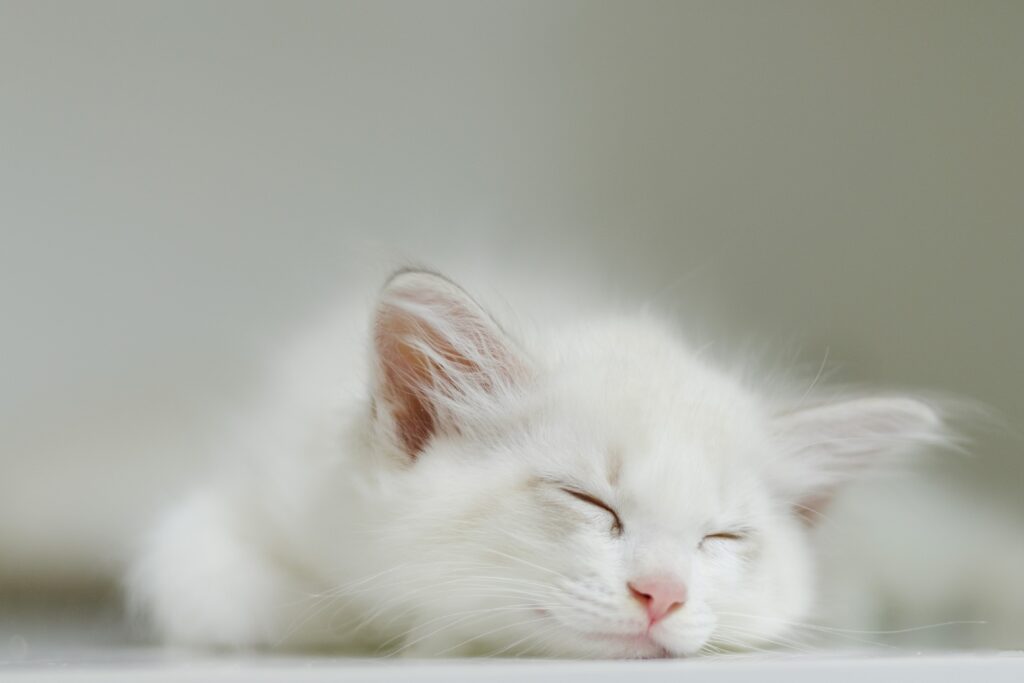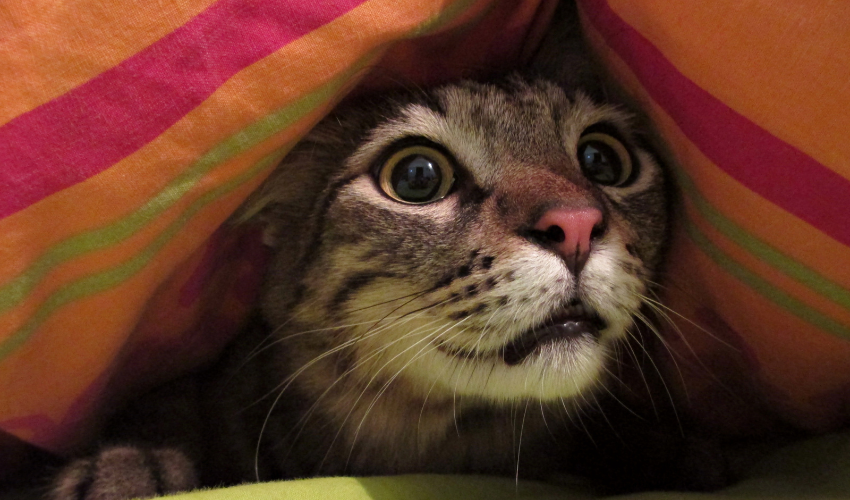Cats, known for their grace and agility, can face health challenges as they age, and one common ailment is hyperthyroidism. Hyperthyroidism occurs when the thyroid gland becomes overactive, leading to an excess production of thyroid hormones. As a responsible cat owner, understanding this condition and adopting a holistic approach to care is essential for maintaining your feline friend’s well-being. In this comprehensive guide, we will delve into the intricacies of hyperthyroidism in cats and explore a holistic approach encompassing nutrition, medication, lifestyle, and emotional well-being.
Unraveling the Mystery of Feline Hyperthyroidism
- Understanding the Thyroid Gland: The thyroid gland, located in a cat’s neck, plays a crucial role in regulating metabolism. When the thyroid gland becomes overactive, it disrupts the balance of hormones in the body, resulting in hyperthyroidism.
- Common Causes and Risk Factors: Hyperthyroidism is more prevalent in older cats, typically aged 10 years and older. The exact cause remains unknown, but factors such as genetics, diet, and environmental influences may contribute.
Recognizing Signs of Hyperthyroidism in Cats
- Weight Loss: Unexplained weight loss, despite an increased appetite, is a hallmark sign of hyperthyroidism in cats. The excess thyroid hormones boost metabolism, leading to weight loss.
- Increased Appetite: Cats with hyperthyroidism often exhibit a ravenous appetite while continuing to lose weight. This increased food intake is a compensatory response to the heightened metabolic rate.
- Hyperactivity and Restlessness: Hyperthyroid cats may display increased activity levels, restlessness, and an inability to settle down. They may appear agitated or anxious.
- Vomiting and Diarrhea: Gastrointestinal symptoms, including vomiting and diarrhea, can occur in cats with hyperthyroidism. These symptoms may contribute to further weight loss.
- Changes in Fur and Skin: Cats may experience changes in their fur, becoming unkempt or greasy. Skin issues, such as thinning or the appearance of lumps, may also occur.
- Increased Thirst and Urination: Hyperthyroidism can lead to increased thirst and urination. Cats may develop a preference for cooler water and may seek out water sources more frequently.
Holistic Care for Cats with Hyperthyroidism
- Nutritional Considerations: Tailoring your cat’s diet to support thyroid health is a crucial aspect of holistic care. Consult with your veterinarian to explore prescription diets designed for cats with hyperthyroidism.
- Supplements for Thyroid Support: Introducing supplements that support thyroid function may be beneficial. Omega-3 fatty acids, L-carnitine, and specific herbal supplements can contribute to overall thyroid health.
- Medication Management: Traditional medications, such as methimazole, are commonly prescribed to manage hyperthyroidism. Consistent and accurate administration is vital, and regular veterinary check-ups are essential for monitoring medication effectiveness.
- Acupuncture and Traditional Chinese Medicine: Some cat owners explore alternative therapies, such as acupuncture and traditional Chinese medicine, as complementary approaches to managing hyperthyroidism. Always consult with a qualified practitioner.
- Environmental Enrichment: Creating an enriched environment for your cat helps alleviate stress, which is beneficial for overall health. Provide stimulating toys, scratching posts, and cozy resting spots.
- Regular Veterinary Check-ups: Scheduled veterinary check-ups are crucial for monitoring your cat’s thyroid levels, adjusting medication dosages if necessary, and addressing any emerging health concerns.
- Emotional Well-being: Cats, like humans, can be influenced by stress. Pay attention to changes in behavior and surroundings, ensuring your cat feels secure and comfortable at home.
- Hydration and Dietary Moisture: Promote hydration by offering wet or moistened cat food. Adequate water intake supports overall health and can help mitigate the impact of increased thirst associated with hyperthyroidism.
- Natural Remedies: Explore natural remedies, such as herbal supplements or homeopathic treatments, with guidance from your veterinarian. These options may provide additional support for your cat’s well-being.
- Maintain a Routine: Cats thrive on routine, and consistency in feeding, playtime, and rest contributes to their overall well-being. A stable environment helps manage stress levels.

The Importance of Collaboration with Your Veterinarian
- Open Communication: Maintain open communication with your veterinarian about your cat’s symptoms, behavior, and any changes observed at home.
- Regular Thyroid Monitoring: Routine monitoring of thyroid levels through blood tests is essential. This allows for adjustments to medication dosages and ensures the ongoing effectiveness of the treatment plan.
- Individualized Care Plans: Every cat is unique, and their response to treatment may vary. Collaborate with your veterinarian to create an individualized care plan tailored to your cat’s specific needs.
- Addressing Side Effects: Some medications may have side effects. If you notice any adverse reactions or changes in behavior, promptly consult with your veterinarian for guidance.
- Exploring Treatment Options: Discuss the full range of treatment options, including medication, surgery, and radioactive iodine therapy. Each option has its considerations, and the best choice depends on your cat’s health status and your preferences.
Conclusion: Nurturing the Well-being of Cats with Hyperthyroidism
Caring for a cat with hyperthyroidism requires a holistic and individualized approach that considers the cat’s physical, emotional, and environmental needs. By combining conventional veterinary care with holistic practices, you can create a comprehensive strategy to support your feline companion’s health and quality of life.
As a devoted cat owner, your commitment to understanding hyperthyroidism and providing compassionate care makes a significant impact on your cat’s journey toward well-being. Together, let’s navigate the complexities of feline health with empathy, knowledge, and a shared bond between caregiver and cat.













